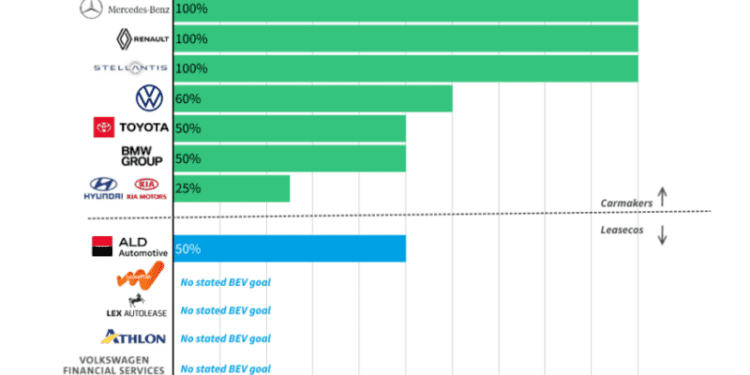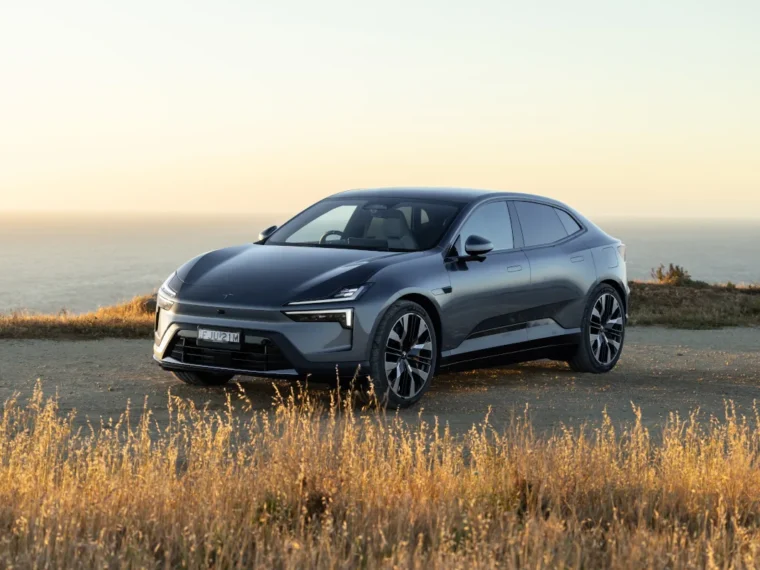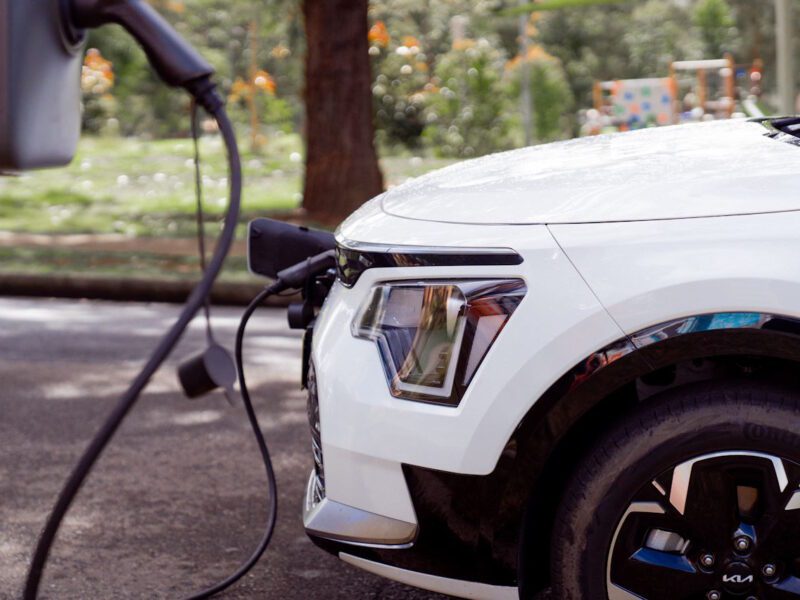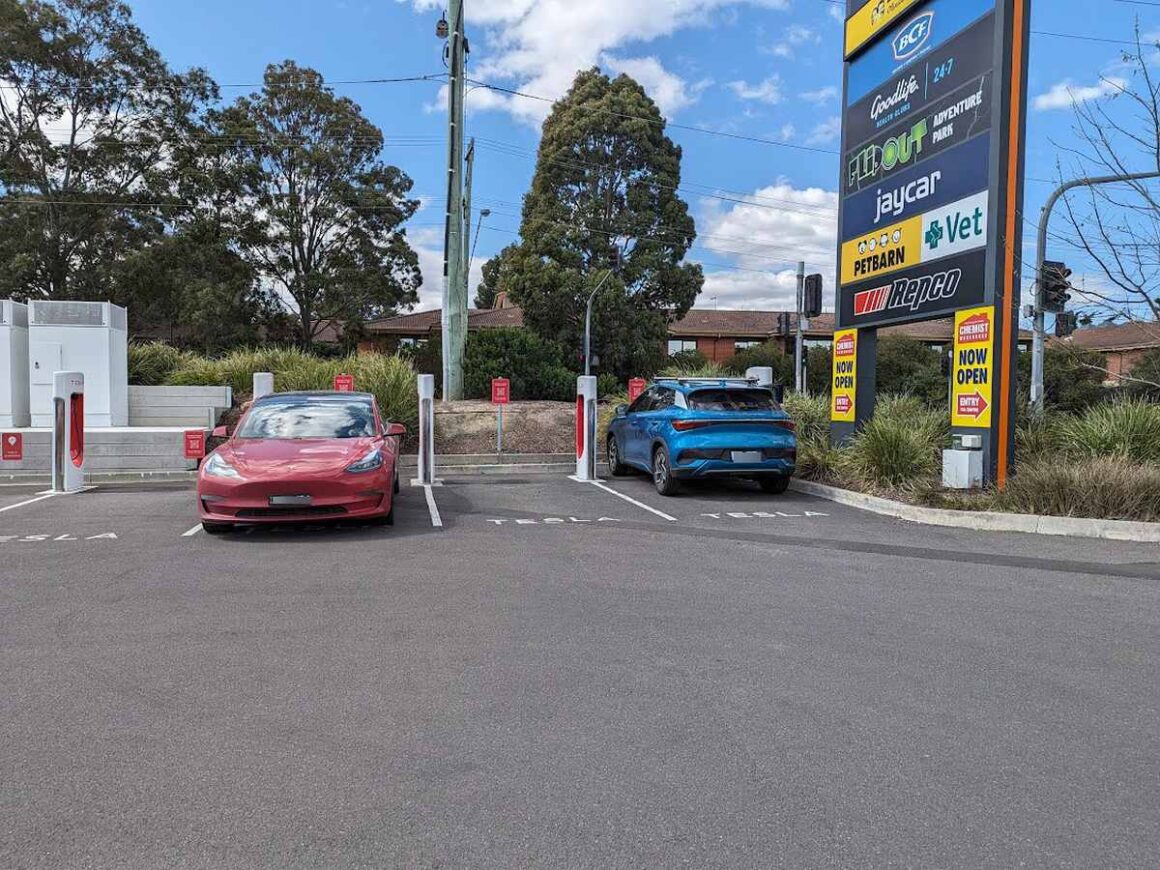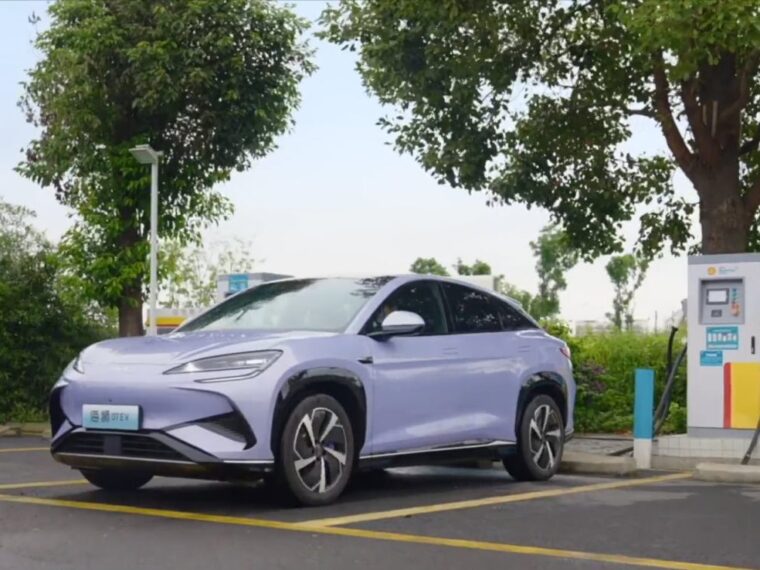European car leasing companies are overcharging for electric vehicles (EVs) compared to their equivalent petrol models, according to a new study by Transport & Environment (T&E). This discrepancy is harming the overall transition to EVs, as customers are being charged more for the same product.
The report found that, on average, leasing offers for BEVs are 57% more expensive than their equivalent petrol models. For example, an electric Peugeot 208 costs approximately €574 a month, whilst the petrol Peugeot 208 is offered at €371. This is despite the fact that BEVs and diesel and petrol vehicles all have similar resale values.
T&E claims that the higher leasing prices for battery electric cars are unjustified, as their analysis of 2.7 million used car prices found that BEVs do not depreciate more than other types of cars. In fact, in Europe’s largest markets of Germany, France, and the UK, BEVs depreciate on par with diesel and petrol vehicles.
Leasing companies have typically charged customers for the expected loss in value of a vehicle over the three- to four-year period of the lease. However, this is no longer the case, and T&E believes that customers are being overcharged if they want to switch to a battery electric car.
Stef Cornelis, director of electric fleets at T&E, said: “Leasing firms are too conservative when setting their monthly prices. Their rates reflect the state of play from 5 years ago. With this pricing strategy, their profits are obviously high, and consumers are overpaying to go electric. At the same time, they are harming the BEV transition.”
Focusing such analysis on leasing companies is important, considering that they boast a fleet of 12 million vehicles across Europe and accounted for 22% of new car registrations in 2022. Many of these leasing companies do not have targets to transition to fully electric BEVs by 2030, and their weak targets often include PHEVs.
Unless leasing companies rapidly accelerate their electrification plans, it will be difficult to supply a second-hand market that will make BEVs affordable to more people and further delay the decarbonisation of the transport sector. As Cornelis concludes: “Leasing companies are climate laggards and not green leaders.”
FAQ
Q1: Are electric car batteries recyclable?
A1: Yes, electric car batteries are recyclable.
Q2: Are electric car chargers free?
A2: It depends on the charger and the location. Some electric car chargers are free, while others may require a fee.
Q3: Can electric car batteries be rebuilt?
A3: Yes, electric car batteries can be rebuilt with the right tools and knowledge.

